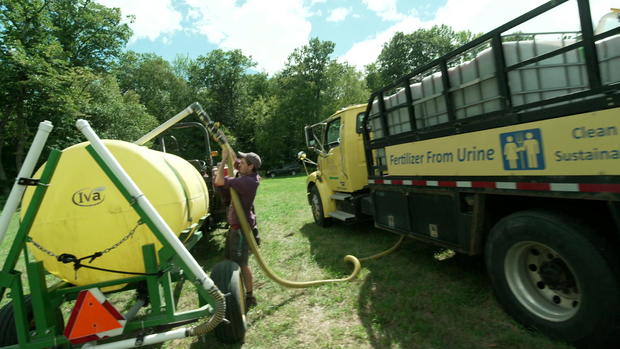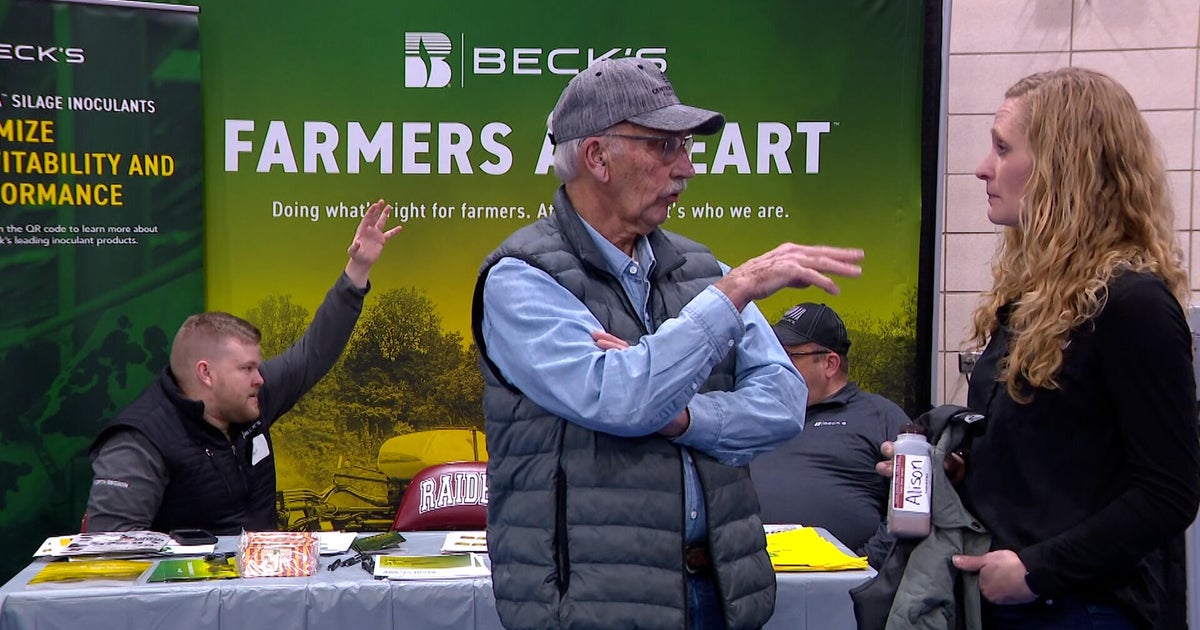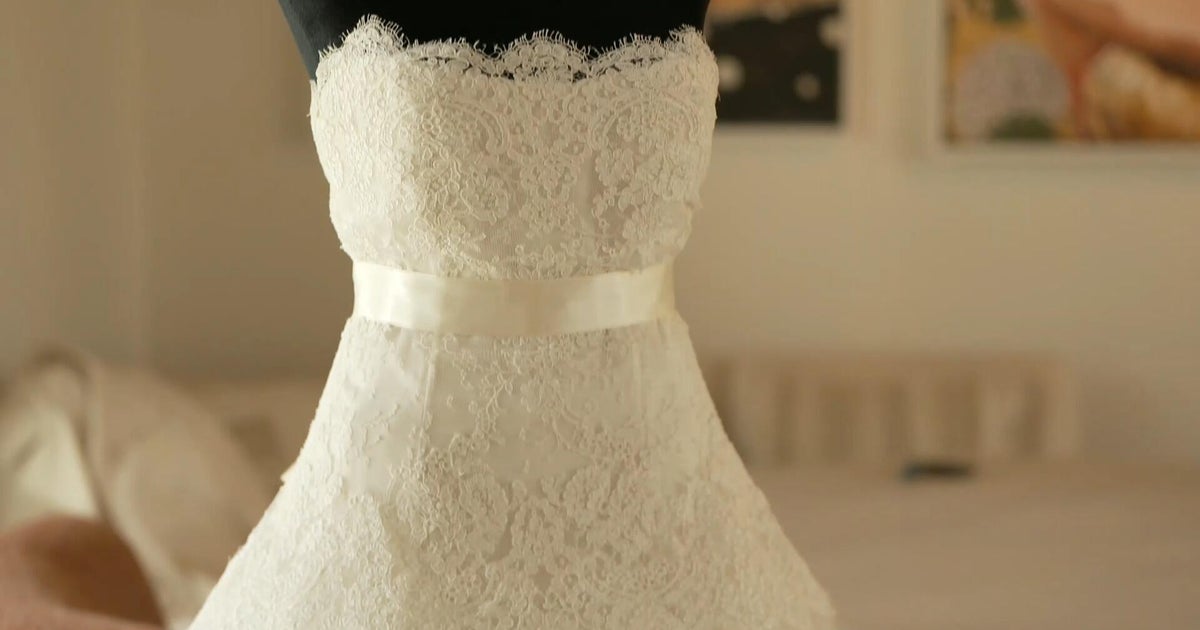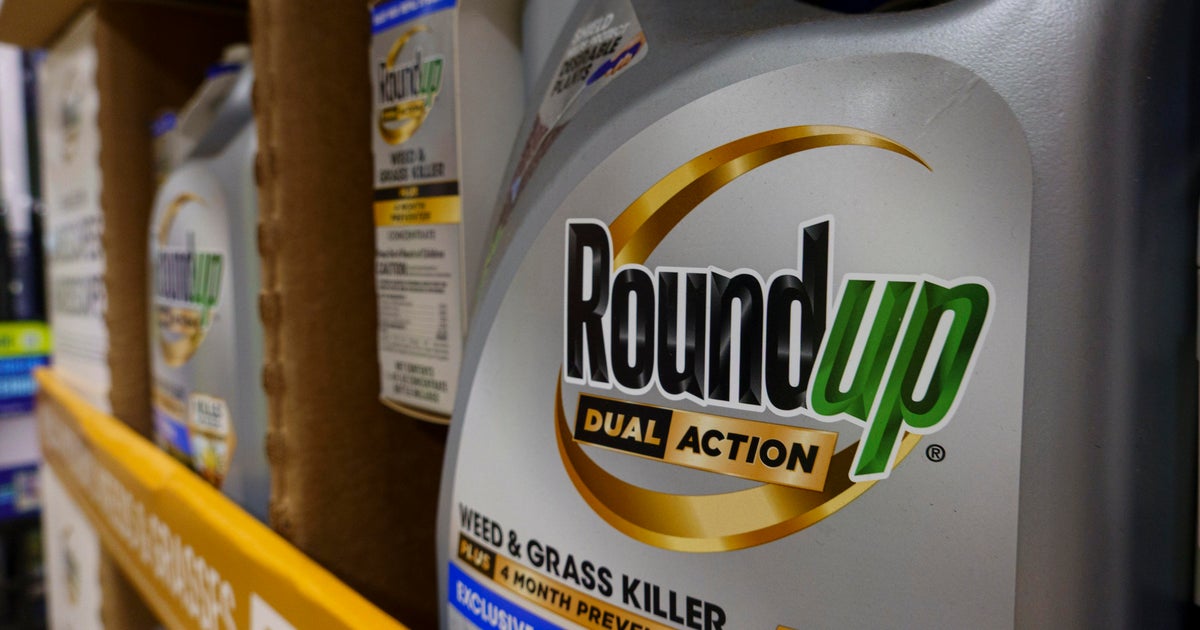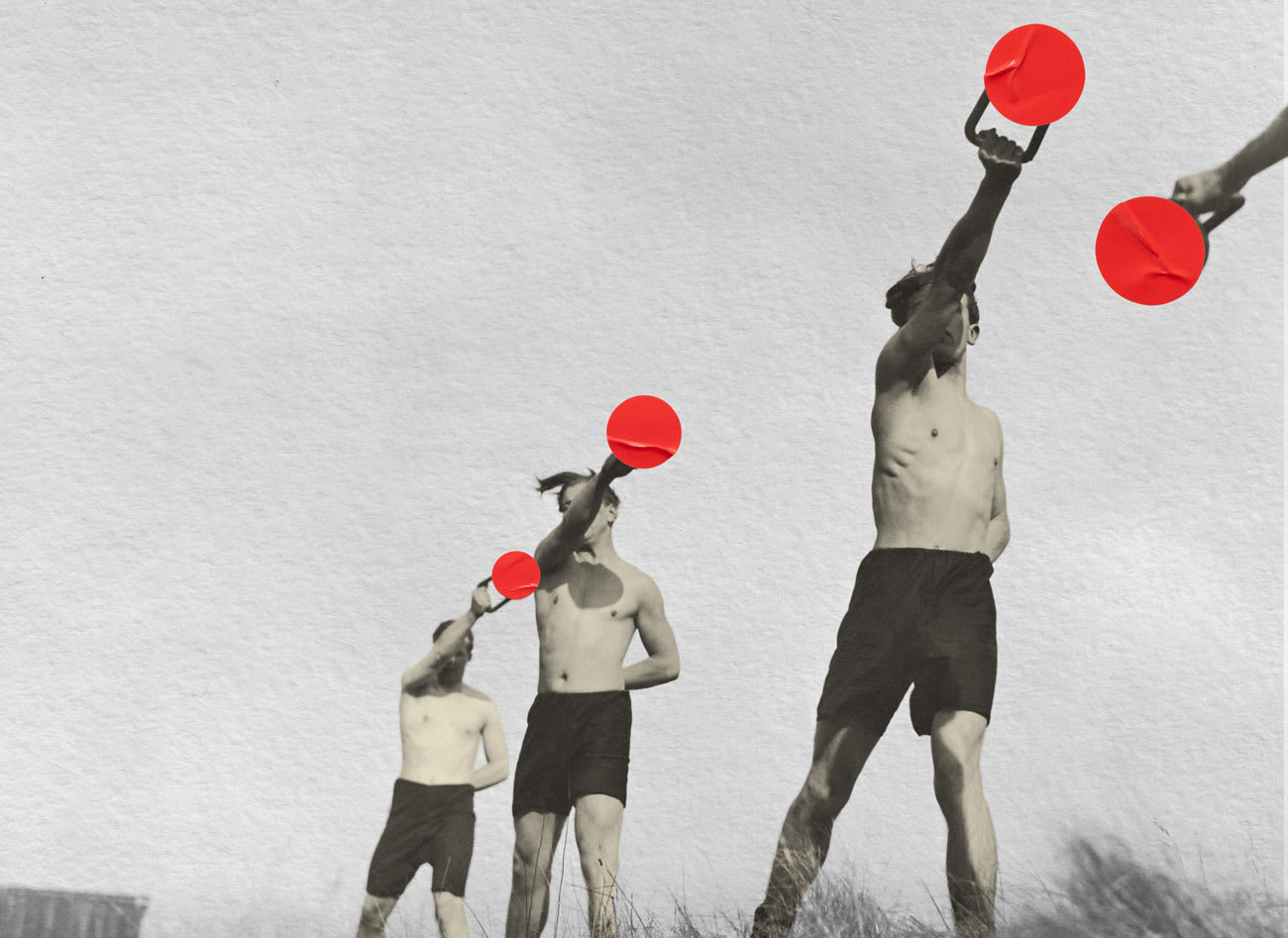Pee-cycling: Turning human urine into fertilizer
In Lissa Schneckenburger's garden in Brattleboro, Vermont, the tomatoes seem happy; so do the bees. And the reason may be because of how she enriches the garden – with her own family's urine. "When we tell people about it, they're mostly confused," Schneckenburger said. "They're just like, 'What? Why? What?'"
Welcome to the world of "pee-cycling" – where urine is not considered waste, but liquid gold.
Kim Nace is co-founder of the Rich Earth Institute, an organization developing ways to turn human urine into fertilizer. "People are usually a little taken aback," she said, "but then I just kinda give 'em the real quick [pitch] – there's nutrients in your urine, and we are figuring out how to capture those and use 'em in agriculture."
What is in urine that plants need? "Nitrogen, phosphorus, potassium, and other trace minerals that come through our body as we eat our food and then use the toilet," Nace said.
Rich Earth Institute collects about 12,000 gallons of urine a year, according to co-founder Abe Noe-Hays. They also deal with pee jokes on a daily basis.
But theirs is a serious endeavor. Researchers around the U.S. and the world are studying urine recycling – in Sweden, Switzerland, France, South Africa and other countries. And the Rich Earth Institute regularly offers educational webinars.
When asked what would surprise people the most about collecting urine for fertilizer, Schneckenburger, who uses a special toilet, replied, "That it is clean, that it doesn't look gross, and it doesn't smell. And the privacy thing, too. That was a surprise to me. It's totally quiet."
There's no flushing with the composting toilet, which is built with two compartments – one for liquid waste, one for solid. "Rich Earth comes with a big truck and a big hose, and they empty the urine tank twice a year," she said.
And if you don't happen to have a special toilet, the Rich Earth Institute offers a low-tech, portable urinal, suitable for men and women.
Rich Earth also makes it easy for donors to deliver their liquid waste to a downtown depot. It's a process that requires no pouring.
Kevin O'Brien, a community tool librarian, has been bringing his urine here for three years. "For me, it takes me about a month to fill up a five-gallon jug, so I'm kind of coming to the depot about once a month to donate," he said. His goal? To donate 100 gallons a year. (Those who do receive a lovely "Piss-Off" certificate from Rich Earth.)
Urine is typically free of harmful bacteria, but if it gets near solid waste, that could lead to disease. So, Abe Noe-Hays says that all of the urine collected by Rich Earth is pasteurized to federal standards. "It's heated up, pathogens die, it cools back down, and then it leaves the machine," he said.
And then, Arthur Davis transfers the clean urine from huge storage tanks to his truck's containers – around a thousand gallons at a time.
On his big yellow truck (with the custom license plate "P4FARMS"), Davis oversees the entire collection and distribution process. He said, "We're dealing with chemistry, we're dealing with biology, we're also dealing with psychology of people, because people have all kinds of thoughts about it."
Today, he's delivering to a true believer: Noah Hoskins, owner of the Bunker Farm. Hoskins says his grazing fields are thirsty for pee. "If you are taking nutrients out of the ground, you need to be replenishing those nutrients in some form or another," he said.
A lot of pee-cycling is still in the research and development phase, but Noe-Hays imagines a bright, yellow future. "We're not asking people to do something that's difficult," he said. "You just use the toilet. That thing you just did, that was great! You made something useful and you made something that's going to do good in the world!"
For more info:
- Rich Earth Institute
- Musician Lissa Schneckenburger
- Bunker Farm, Putney, Vt.
Story produced by Jay Kernis. Editor: Joseph Frandino.
